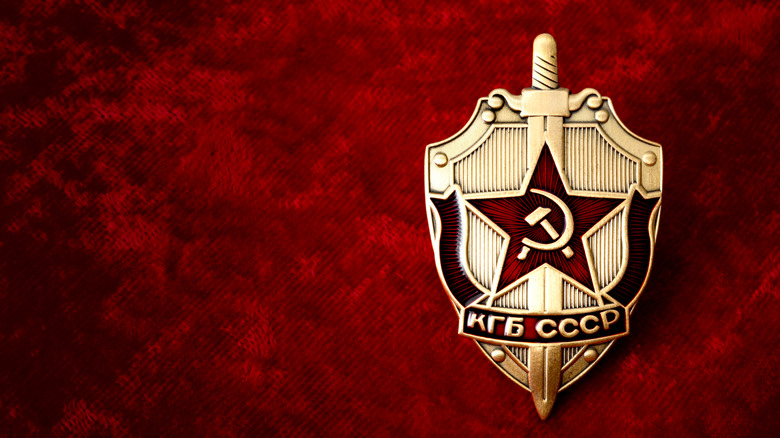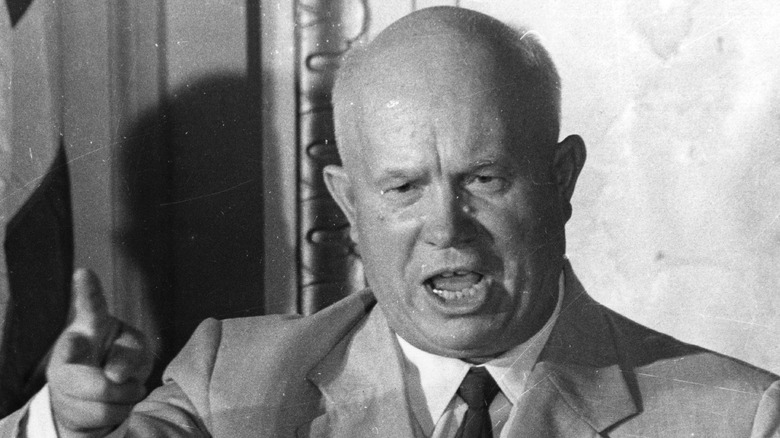Who Started The KGB?
When it comes to secret police and foreign intelligence, nothing quite compares to the KGB. According to Britannica, the KGB was the largest organization of its kind at one time, with more than 480,000 agents, 200,000 soldiers, and millions of informers. These agents were responsible for informing Soviet leaders about key leaders and controlling the population.
KGB stands for Komitet Gosudarstvennoy Bezopasnosti, which is English for "Committee for State Security" (via History). The organization was an extension of the NKGB, which functioned under Soviet leader Joseph Stalin. NKGB spies infiltrated many Western governments and were said to have agents in the Los Alamos National Laboratory, a nuclear weapon research facility in New Mexico. The organization was so successful that Stalin reportedly knew more about what was going on with the U.S., German, and French militaries than he did his own. The NKGB also worked domestically as "secret police," much like the Department of Homeland Security does in the U.S.
Nikita Khrushchev established the KGB
In 1954, new Soviet leader Nikita Khrushchev laid the groundwork for the KGB to serve as the "sword and shield of the Communist Party," according to Britannica. Khrushchev became the Premier of the Soviet Union in 1953 after Joseph Stalin died. In a 1956 speech, he denounced Stalin's crimes and pursued de-Stalinization, a program aimed at reforming the politics of the country, per World Atlas. Under this program, he decreased the powers of intelligence and police organizations, allowed foreigners to enter the country, and even allowed artistic freedom among Soviets.
While Khrushchev was seemingly creating a more free Soviet Union, the KGB was hard at work conducting foreign intelligence operations and eventually became known as the best in the world. The KGB operated domestically and abroad — with agents posing as businessmen and other innocuous roles — and infiltrated Western intelligence organizations in almost every capital.
The KGB attempted a failed rebellion under leader Mikhail Gorbachev, which led to a dissolution of many functions. When the Soviet Union dissolved in 1991, then-leader Boris Yelstin ordered the division of the KGB.

